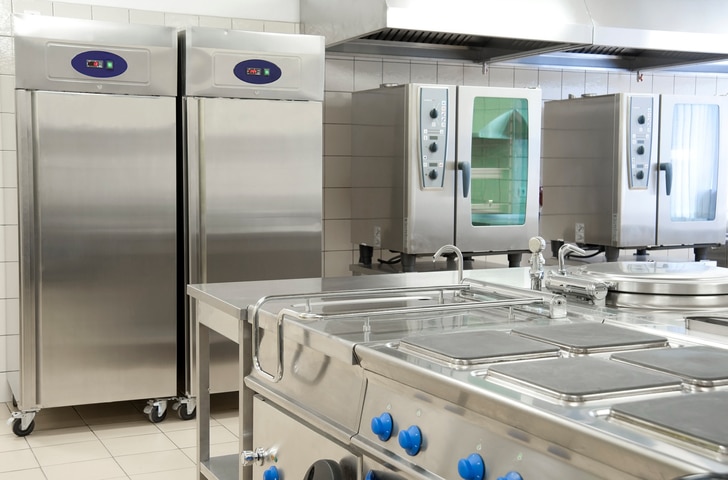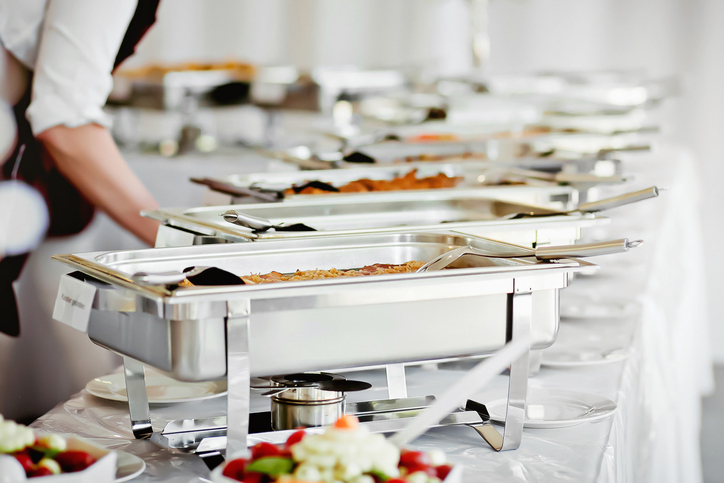
When handling food, safety is of the utmost importance. Keeping foods free of contaminants and out of the danger zone—the range of temperatures when bacteria quickly grow—is an essential part of the process. But how can you ensure that foods stay safe when they have to travel significant distances between the kitchen and the venue, or be prepared at a facility you feel less familiar with?
For caterers, ensuring safe food handling comes with a few extra concerns. Whether catering for a wedding, party, or simple office lunch, there are several challenges that need to be addressed and overcome. Here’s a look at what those challenges are, and what professionals with food handling certification can do to ensure that the meals they serve are as safe as they are tasty.
1. Pros With Food Handling Certification Know that the Venue Needs to Be Carefully Vetted
As those who have completed food handling courses know, foods enter the danger zone when they reach temperatures between 4 to 60 °C. Once in this range, bacteria can double their numbers every twenty minutes, leading to quick spoilage of food items. Therefore, keeping foods either hotter or colder than this threshold is one top concern caterers need to consider. And when it comes to keeping foods cooled or heated, the venue in question will play a big part in how this challenge is addressed.
Before accepting a contract, caterers need to ask several important questions about the venue, preferably visiting the premises in advance to ensure they are up to standard. Does the venue have a kitchen, complete with adequate fridge and freezer space? Is there an oven, and if so, can it accommodate the meal you are preparing? Is counter space plentiful? Are there enough outlets to plug in the equipment you will bring? And while in most cases running hot and cold water will be available, for rustic or remote locations, this might not always be a given.

Facilities at the venue should be carefully examined
Depending on the facilities offered by the venue, you may be able to prepare the meal on site. If not, you’ll need to determine whether prepared food can be safely transported to it.
2. Access to Proper Equipment Is an Important Challenge for Food Handlers to Consider
Whether preparing food on site, reheating prepared foods, or simply serving foods at the venue, you’ll need to ensure you have the proper equipment in place. This can be as simple as remembering to bring serving trays, gloves, cleaning supplies, and compost bags for waste, but could also involve bringing equipment needed to reheat items, or keep items at a safe temperature.

Proper equipment like chafing dishes is important
For a buffet, for example, you might need to bring chafing dishes to keep foods warm for the entire event, along with enough fuel to keep them running. If your chaffing dishes are powered by electricity, you might also need to make sure you have enough extension cords to reach plugs, as well as tape to secure them to the ground and prevent any tripping.
3. Proper Transport of Food Is an Obstacle Those With Food Handling Certification Overcome
Caterers with food handling certification know that one of the biggest food safety challenges to overcome when catering an event is transportation. How you address this problem will depend on the facilities at the venue, how far away the venue is, and the equipment you have access to. For example, if you’re able to prepare everything on site, then you’ll only need to worry about transporting ingredients. If you need to transport cold prepared foods, on the other hand, you’ll need to have insulated boxes or a refrigerated van to keep items safe. For hot foods that need to travel a long distance, keeping them safe for consumption will be much more difficult. If you can’t reheat items at the venue, changing the menu or refusing the contract might be the only options open.
In addition, savvy caterers also know that traffic, construction, and other factors need to be carefully considered. While the drive between the venue and your kitchen might be short outside of peak hours, traffic can add significantly to travel time, and have a big impact on whether prepared foods will still be safe to eat once they reach their destination. By carefully thinking through all of these concerns and making sure to address each one, caterers can ensure that the foods they prepare stay safe.
Are you in need of food handling certification for your catering business?
Contact AAPS to complete your food safety training in Toronto!



